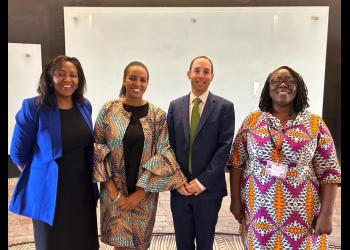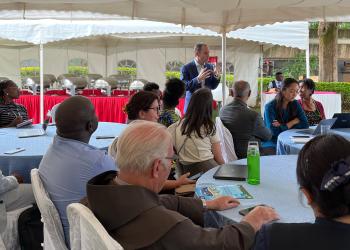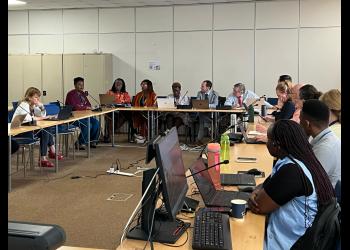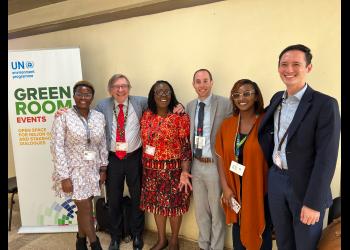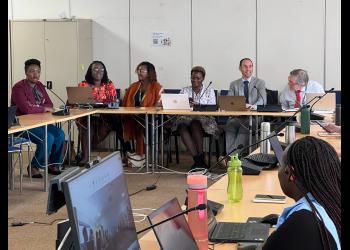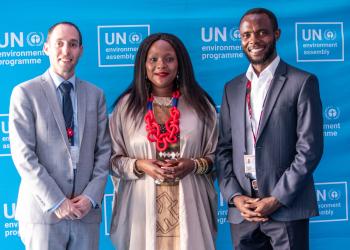The Role of the Environment in the Future of Global Governance
“There can be no future without the environment.”
Variations of this refrain were heard across the 6th United Nations Environment Assembly (UNEA 6), which met last week in Nairobi, Kenya. With the UN’s Summit of the Future taking place in New York this September, many participants emphasized the connection between addressing the “triple planetary crisis” and ensuring humanity’s long-term well-being.
Delegates from the Baha’i International Community (BIC) highlighted the role that concern for the environment can play in improving global governance—for example, as a point of consensus around which all UN Member States can agree and coordinated action be organized.
“Humanity has demonstrated its capacity to have a profound negative impact on the natural world,” noted Daniel Perell, a Representative of the BIC who attended the Assembly. “But concurrently we see communities all over the world arising to take action, and taking steps to avert the most dangerous consequences.”
The BIC delegation hosted two events focused on the role of the environment in the upcoming Summit of the Future. “Centering Environmental Governance: Opportunities for the Summit of the Future and Beyond” was a high-level breakfast meeting that, through participatory small group techniques, explored underlying assumptions, a vision of a different future, and a path to get there. Notes of the event are available here.
The second, titled “Bringing the Environment into the Summit of the Future,” featured speakers associated with a variety of multilateral processes, including those with experience in implementing the UN Sustainable Development Goals, disaster risk reduction, climate change mitigation, and policy and research. The panel also featured one of the co-chairs of the upcoming Civil Society Conference being held in Nairobi in May.
The role to be played by religious communities and faith-based organizations was a vibrant theme at the Assembly. Speaking at an interfaith event organized by the Faith for Earth Coalition, Perell noted that religious communities operate on time scales far longer than more conventional political governance processes.
“A long-term, future orientation can allow for sacrifice today in order to better the world for those to come,” Perell said. “This noble aspiration can take many forms, but ultimately it shifts our behavior and incentives beyond material gain and short-term competition to a better future for the planet and for generations to come.”
